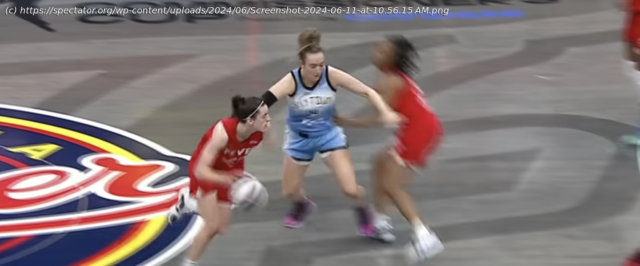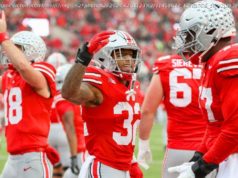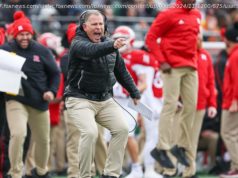Many of the players in the WNBA, despite the benefits of the unprecedented attention Caitlin Clark has generated, don’t like her one bit.
The NBA Finals and the Stanley Cup Final are in full flight. News came down recently that college football players will soon receive regular salaries for their play; the best golfer in the world got arrested and booked while trying to get to his tee time; and the United States defeated Pakistan in cricket.
The sports world is awash in novelty and intrigue at the moment, but the big sports story that won’t go away is about the WNBA.
Yes, that WNBA. The WNBA that lost money every year since its inception in 1997 and exists only due to subsidies from its male counterpart, the NBA. The WNBA whose top players don’t even pull down six-figure salaries. The WNBA whose players fly commercial. The WNBA that has been a staple of stand-up comics for as long as it has existed. (READ MORE from Tom Raabe: A Max-less Mad Max)
If you look closely, you’ll see many of the players in the WNBA, despite the inarguable benefits of such unprecedented attention, are not liking it one bit.
It all has to do with one player — Caitlin Clark.
She was a college phenom at Iowa, a talent never before seen on the college stage, ever. She averaged 31.6 points per game her senior season, on her way to more career points than any woman in college history — 3,685 — and any male as well, surpassing even “Pistol” Pete Maravich. Her Iowa Hawkeyes’ championship game against South Carolina in March Madness captured more TV viewers than the men’s championship game. She went No. 1 to the Indiana Fever in the WNBA draft, and 2.5 million watched it on TV, five times more than last year. She’s all over the tube plumping for Gatorade and State Farm and has signed a deal with Nike for $28 million and a signature shoe before playing a single professional game. She is regularly mobbed by fans — lots of young girls — whom she accommodates with autographs. She has inserted the WNBA into nightly sportscasts and made the league relevant.
And, other players are ragging on her, fouling her hard, throwing elbows at her, and generally singling her out for rough treatment. In the latest incident, a player from the Chicago Sky, Chennedy Carter, hip-checked Clark to the floor while the ball was not even in play. One of Carter’s teammates, Angel Reese, a nemesis of Clark’s from college days, cheered from the bench, while Clark’s nearest teammate seemed slow to help her up.
Why the animosity?
Answers are plentiful, and it depends on whom you ask.






